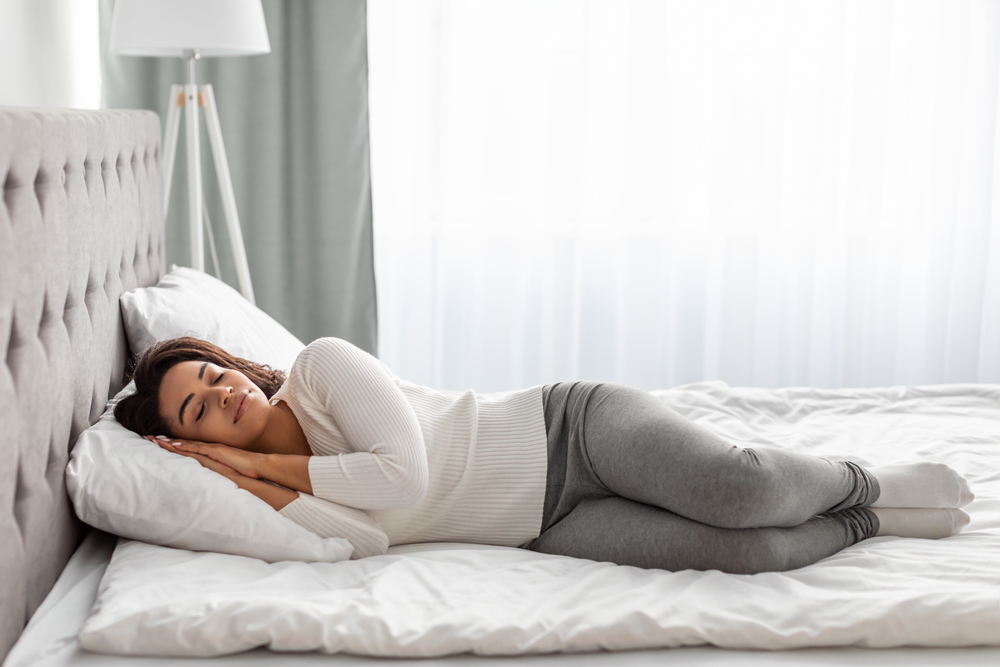The position you choose to sleep in each night could be having a bigger impact on your health than you might realize. For instance, sleeping on your back with a pillow under your spine might help ease back pain, but it could also exacerbate sleep apnea symptoms. On the other hand, side sleeping may alleviate those sleep apnea issues but might leave your spine feeling sore in the morning.
For those with heart conditions, sleeping on the left side might not be the best choice, as some believe it could put added pressure on the heart. However, this is still a topic under study, and more research is needed to draw definitive conclusions. Despite the varying opinions on the best sleeping position, there’s one thing all experts agree on: the quality and quantity of sleep you get are critical. Inadequate or poor-quality sleep has been linked to an increased risk of heart disease and other serious health issues. Therefore, the best sleep position is likely the one that allows you to get the most restful and uninterrupted sleep.
Many people find sleeping on their left side beneficial, especially those who suffer from acid reflux or gastroesophageal reflux disease (GERD). A 2022 study revealed that sleeping on the left side significantly reduced acid exposure and helped the esophagus clear more quickly compared to sleeping on the right side. However, there is a catch—sleeping on the left side may also have some drawbacks for your heart. Research as far back as 1997 showed that side sleeping, particularly on the left, caused noticeable changes in heart activity as measured by an electrocardiogram (ECG). More recent studies in 2018 confirmed these findings, noting that left-side sleeping caused the heart to shift and rotate slightly within the chest cavity. In contrast, sleeping on the right side showed almost no change in ECG readings, likely because the heart is held in place by the mediastinum, the thin layer of tissue between the lungs.
These changes in heart activity due to sleep position are intriguing but don’t necessarily indicate any harmful effects on heart function. The shifts in electrical activity observed in studies are more about the position of the heart rather than its performance. Still, more research is needed to fully understand the implications, especially for those with pre-existing heart conditions.
The debate continues among sleep experts about which side is better for your heart—left or right. Some argue that sleeping on the right side might compress the vena cava, the large vein that returns blood to the heart. However, there’s currently no solid evidence suggesting that sleeping on the right side increases the risk of heart failure, making it generally considered safe. In fact, a 2018 study found that people with a heart muscle disease known as dilated cardiomyopathy were more comfortable sleeping on their right side than their left.
Pregnant women, too, often face a dilemma about the best sleeping position. While some doctors recommend sleeping on the left side to keep pressure off the liver and ensure better blood flow to the fetus, right-side sleeping can actually make it easier for the heart by relieving pressure on the inferior vena cava, the vein that carries blood from the lower body back to the heart. A 2019 review found no significant difference in the health of pregnant women or their babies whether they slept on their left or right sides. For added comfort, especially as pregnancy progresses, many women find that lying on their side with knees bent, perhaps with a body or wedge pillow for support, works best.
In summary, while there’s ongoing debate about the ideal sleep position, the most important takeaway is to choose a position that allows you to get the best possible sleep. Whether you prefer your left side, right side, or another position altogether, getting enough quality rest is what truly matters for your overall health.


